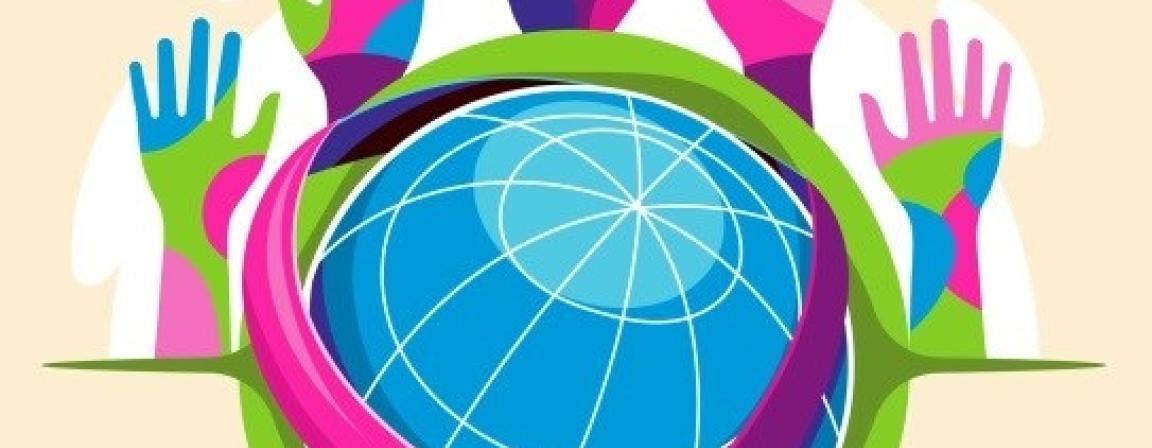Rare disease week : let's hoist our colours together!
More than 300 million people worldwide suffer from a rare disease. Then there are all the families and friends who are also affected by the illness. United in supporting them across the globe are the hospitals, professionals, nurses and volunteers. The Brussels University Hospital (H.U.B.), consisting of the Erasmus Hospital, the Queen Fabiola Children's University Hospital and the Jules Bordet Institute, is committed to arriving at a better understanding of these diseases, to effectively combating them and to improving the quality of life of patients. To support them and the RadiOrg campaign symbolised by colours during this world week to boost awareness of rare diseases, the H.U.B. is also hoisting its colours!

Rare diseases that are not as rare as that…
It is estimated that between 6% and 8% of the population, that is between 660,000 and 880,000 people, suffer from a rare disease in Belgium. They are known as "rare" because each of these diseases affects fewer than 1 in 2,000 people, that is between 1 and a maximum of 6,000 people1 in Belgium. There are estimated to be more than 6,000 rare diseases. This means that the expertise is pleomorphic and access to affordable, qualified and adapted treatment difficult. It takes an average of 4.9 years to obtain a correct diagnosis for a rare disease. It is in childhood that 70% of these diseases first appear and 72% are of genetic origin. At present fewer than 6% of patients receive effective treatment. Rare cancers alone account for more than 20% of all cancers diagnosed in Belgium every year. With RadiOrg (Rare Diseases Organisation Belgium) and the support of its hospital network, the Brussels University Hospital is participating in the "Share your colours'" campaign as a means of echoing the voices of all persons living with a rare disease and their demands, expectations, needs and hopes. A call and a responsibility that are proudly embraced by the Brussels University Hospital and the three institutions of which it is composed that concentrate comprehensive and highly specialised care in diagnosing and accompanying patients with rare diseases. We are all rare, together!
Networking to boost expertise
Treating rare diseases, including rare cancers, is a particular strength of the Brussels University Hospital and its hospital network. On one hand, bringing together the expertise of the three institutions of renown that constitute the H.U.B. means we can count on almost 100 clinical and scientific specialities and close to 5,000 care staff. On the other hand, national collaborations strengthen this expertise. The ULB hospital network includes almost 20 institutions in Belgium that mobilise to support our patients and their family and loved ones. Treating a rare disease does not only take place within a single institution but in cooperation with national institutions or even institutions worldwide. The Brussels University Hospital is a part of this dynamic in offering each patient the very best quality care and the very best chances of recovery.
Committed to providing the best possible care
At the H.U.B we therefore strive every day to develop recognised expertise, optimal access to treatment and innovative medicines, better cooperation between care staff, and adapted and coordinated care and support. Every day we work on highlighting the demands formulated in the various rare disease plans and promote clinical excellence, research and teaching. Finally, we are present on a day-to-day basis alongside our patients, their families and associations to ensure that the right of access to quality and accessible care is recognised:
- In all the dimensions of global care;
- From the bedside to policy-making;
- At national and international level;
- In the teaching and continuous training of our teams;
- In research and the dissemination of new treatments;
- In developing, sharing and implementing new directives and care resources;
- In personalised care pathways that are continuously adapted to the needs of our patients, their families and their respective developments;
- In patient partnerships that are rich in meaning and opportunities to provide an ever better response to the multiple and individual realities of illness.
To conclude: rarity is more than statistics alone. When it comes to our patients suffering from a rare disease and their families and loved ones, 100% are concerned by the disease. It is therefore also 100% of their carers who are at their side in sharing and hoisting their colours!